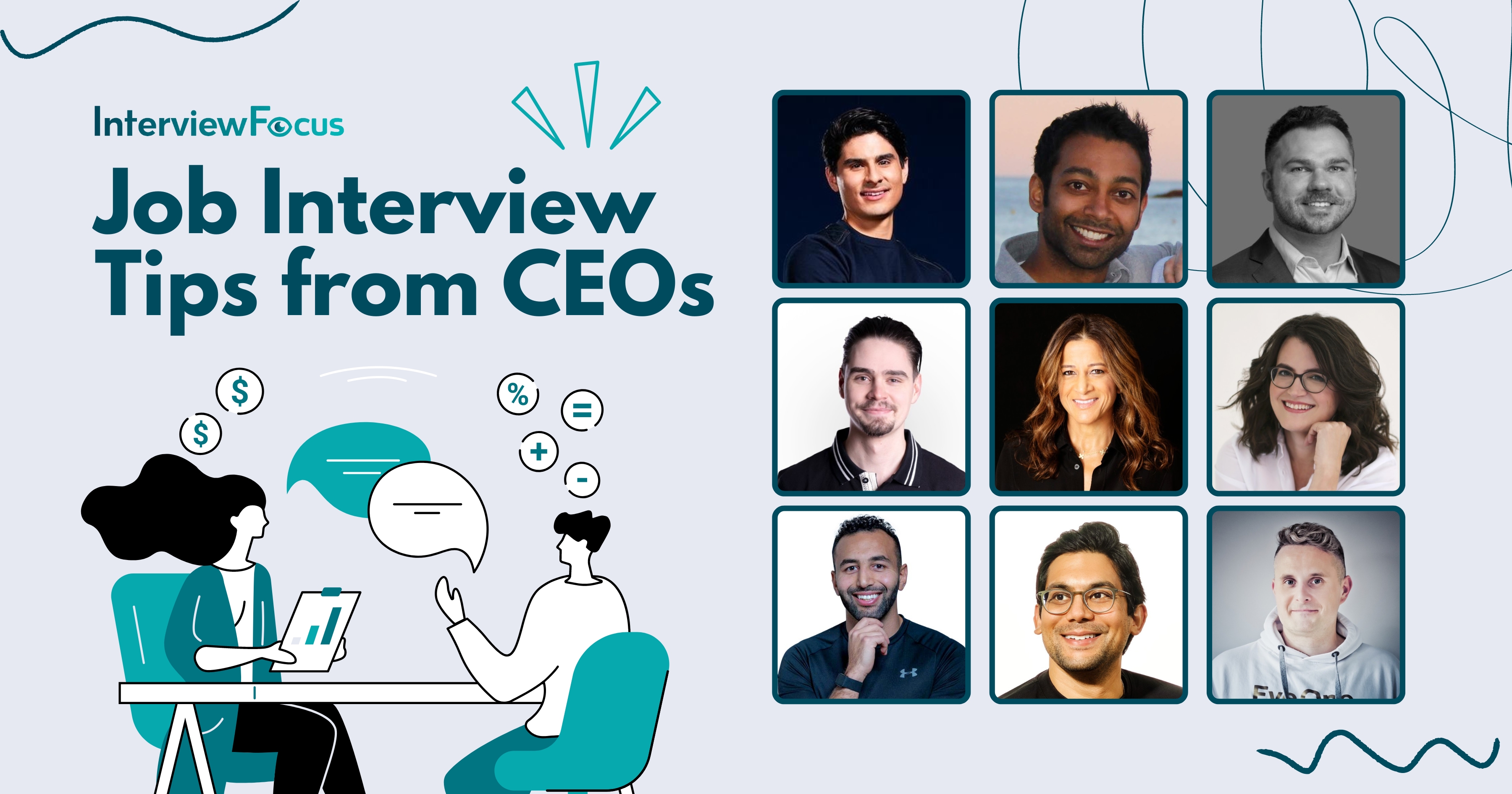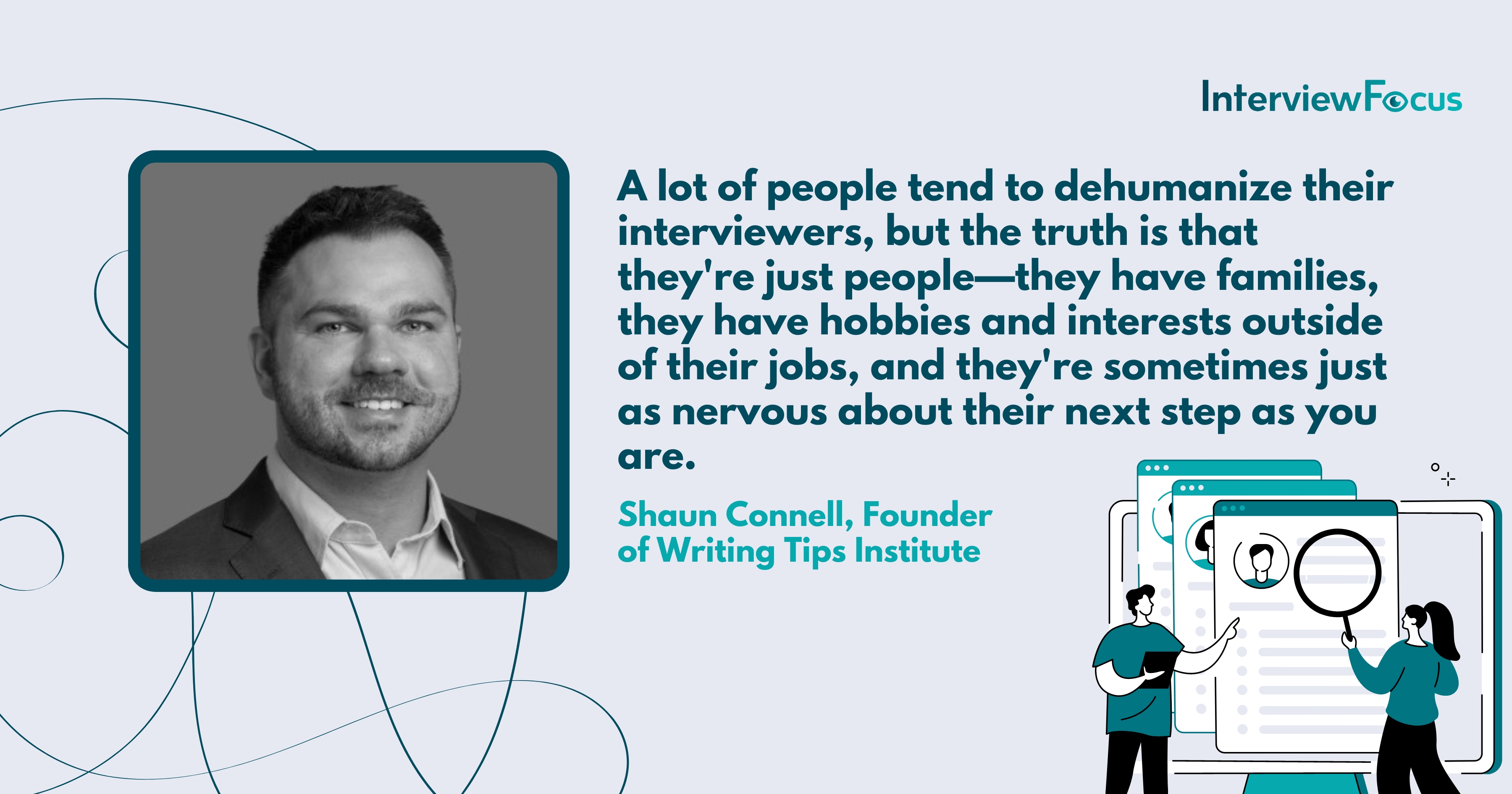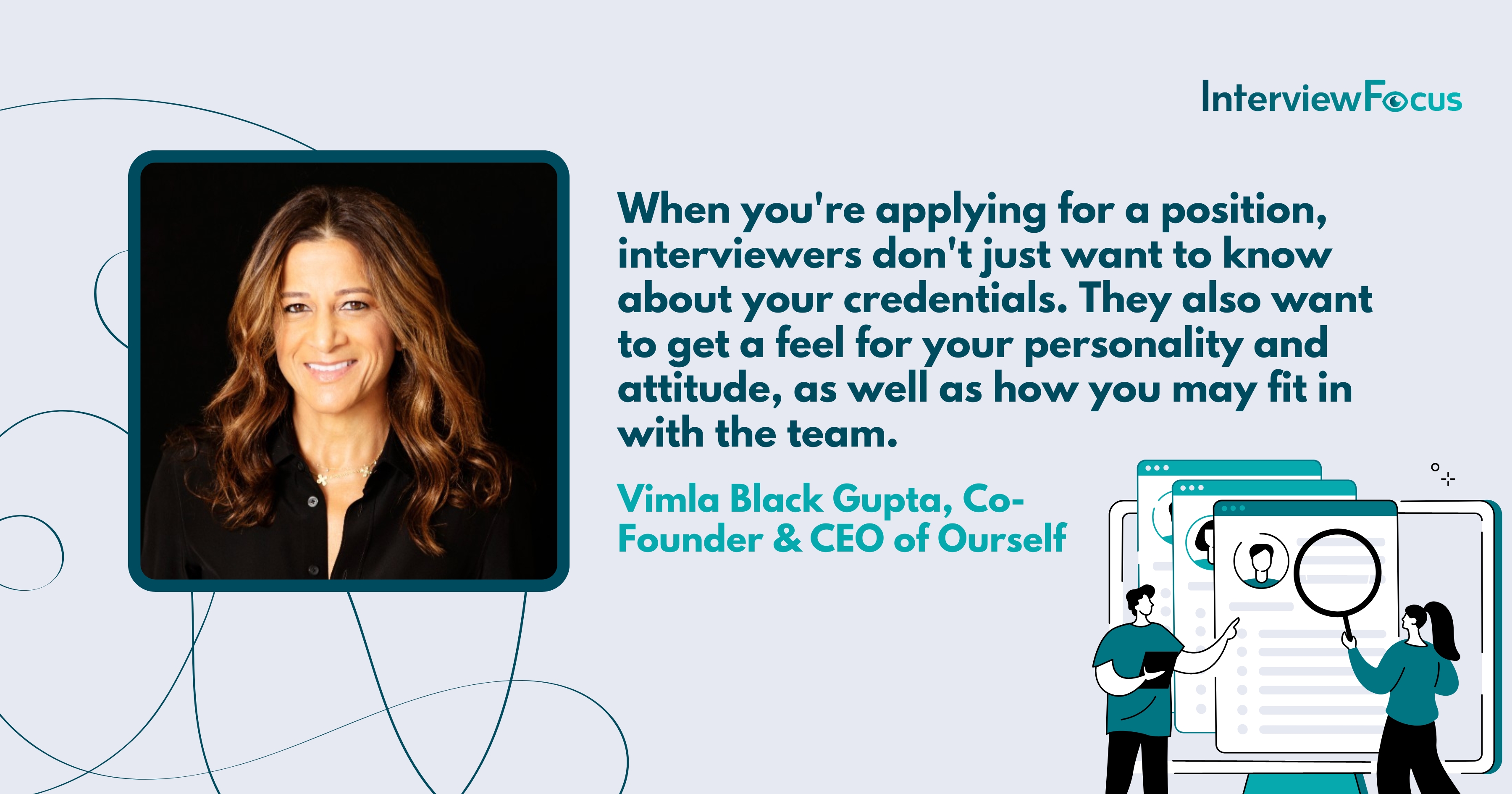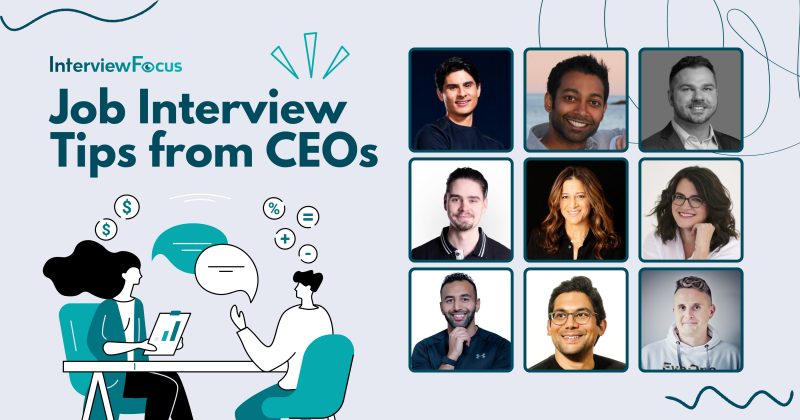CEOs, what is one job interview tip for job seekers?
In today’s market, do you know how to set yourself apart from other strong candidates? With the increased demand for open positions and a healthy pool of candidates for companies to select from, if you’re currently job seeking, you can’t overlook advice from those successful in your industry.
These 13 CEOs and business leaders offered up their tips for how to cinch any job position by making a strong showing during the interview.
- Situate Your Goals in the Context of the Company
- Come in With a Purpose
- Dehumanize Interviewer
- Score a Personal Success in the First 5 Minutes
- Show off Your Personality
- Identify Your Long-Term Goals
- Learn How to Present Yourself
- How You Show up Sets the Tone
- Ask Smart Questions
- Answer Questions Using the Star Method
- Confidence is Key
- Turn the Interview Into a Conversation
- Show How You Will Contribute to Company Success

Situate Your Goals in the Context of the Company
A frequent tip for job seekers is to share their personal story. However, what I’ve witnessed more and more often is that job seekers will focus solely on their own story, and often leave out the most important character—the company. When asked about your career goals in a job interview, don’t only share your personal goals and ambitions, but also what you want to achieve and achieve in the company you’re interviewing for.
By doing so, you’re showing that you not only have a general interest in the job, but also a deep understanding of the company’s goals, values and culture. Moreover, you’re showing that you’ve done your homework and are not only a general candidate, but a specific candidate for that job.
Matthew Ramirez, CEO, Rephrasely
Come in With a Purpose
It’s incredibly important that job seekers come in with a purpose. It’s extremely enticing to employers when job seekers have a purpose and come in sharing their clear intentions of why they’re interested in the job. That said, never be afraid of making your intentions clear with the interviewer about what drew you to the job and why you would be the best fit.
Adrian Pereira, Co-Founder, Eco Pea Co.
Dehumanize Interviewer
One job interview tip for job seekers is to remember that your interviewer is just another person like you. A lot of people tend to dehumanize their interviewers, but the truth is that they’re just people—they have families, they have hobbies and interests outside of their jobs, and they’re sometimes just as nervous about their next step as you are.
So when you go into an interview, don’t forget that you’re talking to another person who wants to work with you because you are the best fit for them. When you remember that it’s not just an opportunity for you to prove yourself in a professional setting, but also an opportunity for them to prove themselves as professionals who can help you grow and succeed in your career goals, it can take some pressure off of you and make the interview less stressful.
Shaun Connell, Founder, Writing Tips Institute

Score a Personal Success in the First 5 Minutes
Scoring a personal success for oneself in the first five minutes is an excellent interview goal. Simple goals, like making an interviewer laugh or say ‘wow’ to a resume feature, can be excellent benchmark objectives. They also connect with the interviewer more on a personal level. For the interviewee, a goal like that can be both an excellent motivator and something external to focus on to steady the nerves.
Adam Bem, Co-Founder & COO, Victoria VR
Show off Your Personality
Try to engage with your interviewer. Job interviews can be stressful, and the pressure to be professional can sometimes make it hard for candidates’ personalities to shine. When you’re applying for a position, interviewers don’t just want to know about your credentials. They also want to get a feel for your personality and attitude, as well as how you may fit in with the team. Try to engage with your interviewer, so they can get a feel for what you’re like outside of your resume.
Vimla Black Gupta, Co-Founder & CEO, Ourself

Identify Your Long-Term Goals
Whether it’s because of necessity or by choice, it’s common for job seekers to make a mistake or two when it comes to choosing the right option. This is why it’s crucial to identify your long-term goals and use them as your true north. This helps you pick an opportunity that serves your personal goals and gives you the tools you require to inch closer to your long-term goals. Moreover, when you’re on the right track, you’re more likely to have job satisfaction and motivation.
Larissa Pickens, Owner, Repeat Replay
Learn How to Present Yourself
You can learn a lot about a candidate by how their cover letter and resume look. Both need to be free of grammatical errors and typos, and they need to tout your experiences and accomplishments. They need to look professionally done, especially so your resume, and your cover letter needs to be well written.
I’ve waded through a lot of resumes and cover letters, and most of them are not up to standard. It’s astonishing how often people present resumes that are lackluster and cover letters that are ankle-deep in creativity. If necessary, get someone to help you craft your resume and at the very least, have someone edit your cover letter. Remember that saying about first impressions? Your resume and cover letter are an employer’s first impression of you. Make it count.
John Sarson, CEO, American Crypto Academy
How You Show up Sets the Tone
First impressions matter because how you show up sets the tone. Dress in business casual or formal attire to communicate that you believe in yourself. Roll your shoulders back, stand tall, show a sincere smile, and you’re already ahead of the game. It’s vital to remember that your interviewer wants to hire you, so transmute any nerves you feel into excitement to ensure you leave an impeccable first impression.
Mina Elias, Founder and CEO, Trivium
Ask Smart Questions
Don’t waste your opportunity to ask questions at the end of a job interview. Though underestimated by many candidates, it’s actually a great chance to prove yourself and show the recruiter that you’re not only a professional, but also a cultural fit for the company.
Additionally, the choice of question matters. It reveals much more about a job seeker than you might think. This includes how well-prepared for the interview they are, what they know about the company they apply to, and more. Don’t be afraid to stand out from a candidate’s pool, think out of the box, and ask thoughtful questions.
Agata Szczepanek, Community Manager, LiveCareer
Answer Questions Using the Star Method
As a CEO, I want to know whether a potential candidate will be effective in their role. That’s one of the reasons why the best way to answer questions is by using the STAR method. STAR stands for Situation, Task, Action, and Result.
First, discuss the situation surrounding yourself at the time. Then briefly describe the task your manager assigned to you. Next, talk about the action you took. Finally, define the results after you had taken action. This gives the interviewer insight into your thought process, how you approach tasks, and what you might do to take the company to the next level.
Gary Paull Jr., CEO, Gauss
Confidence is Key
Do your best to project an aura of confidence even if you aren’t feeling in top shape. Employers want to feel that the person they’re interviewing is assured in their skills and abilities. Even if your credentials are impeccable, lacking confidence in your interview phase will leave your potential employer questioning the integrity of your training. It’s a good idea to get as much practice as you can when it comes to speaking to interviewers directly.
If you can, borrow a friend, family member or colleague who you can practice your lines with. Don’t worry about coming off as too rehearsed at the start. Focus on smoothly conveying information without stuttering or looking away from your partner. As you get more used to proper interview etiquette, you can work on speaking with a more natural cadence. Practice will help you build your confidence in interviewing. With enough of it under your belt you won’t need to fake it to make it.
Neel Shah, Founder, EZ Newswire
Turn the Interview Into a Conversation
A job interview is a somewhat artificial situation in which both parties are on opposite sides at the beginning. The best interviews I’ve had with candidates were informative conversations. The same you would have with these candidates if they were already on your team. How to do it?
I recommend showing that you know something more about his company than what was written in the job post. Even by asking a question about an article about the company, you show that you’re interested and have a professional approach by doing research beforehand. Sounds simple, but it does the job. Importantly, this method works best for C-level and higher management—they are looking for team partners, not employees to do basic work.
Maciej Kujawa, CEO, Eye One
Show How You Will Contribute to Company Success
A key tip for all interviewees is to set up clearly, up front at least two or three ways you believe you can contribute to the success of the company. While any strong CEOs want to know what you’re looking for in a job so they support your growth and ensure a positive employment experience for you, it’s best to start with the ways in which you believe you’re the best person for the job and how you can have an impact on the business. Most candidates get to the next round just by leading with their value add.
Ashley Kenny, Founder, Heirloom





